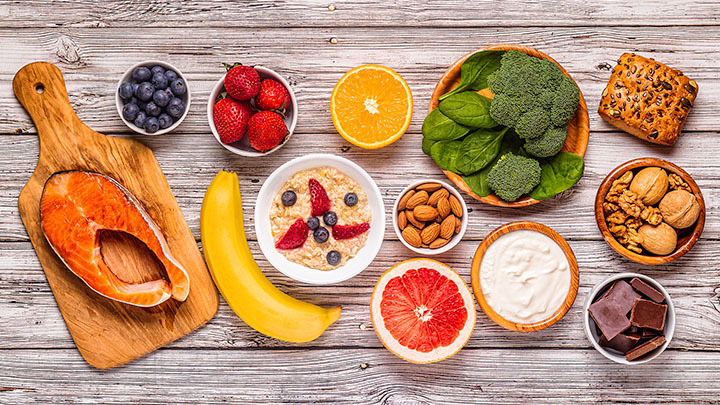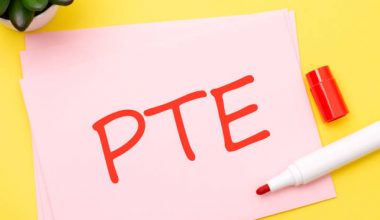Are there brain food for studying? Yes! And now that the exam season for 2024 is fast approaching, students everywhere are gearing up for long hours of studying and intense mental focus. While a well-structured study routine and effective time management are crucial.
One aspect of successful studying is the role of nutrition, but it is usually not taken seriously . What you eat can significantly impact your cognitive function and overall brain health. Hence, the need for effective brain food for studying.
This article lists 10 effective brain foods that have excellent properties and can provide the nutrients that will help you do well in your exams and score higher.
Table of Contents
What is a Brain?
The brain is the central component of the neurological systems of all vertebrate species and the vast majority of invertebrate species. It is located inside the head, usually close to the sensory components that control senses, like vision. It is the most complex organ in a vertebrate’s body.
Each neuron has hundreds of synapses connecting it to other neurons. These neurons typically communicate with one another through long fibers known as axons, which send action potential trains to distant parts of the brain or body with a specific cell in mind.
What is Brain Food?
Your brain needs some vitamins, minerals, and antioxidants to stay fit. While a healthy diet can help support the brain, certain foods such as eggs, green vegetables, oily fish, and blueberries are particularly good for the brain.
Brain food alone will keep the mind fit, but following healthy eating patterns will benefit the brain. Many eggs to create a pattern on a sepia background.
These are foods that help the brain in some way. These foods contain nutrients such as fatty acids, B vitamins, vitamin E, vitamin C, selenium, and iron that help your brain function properly.
Eating a diet rich in these brain nutrients will help prevent brain diseases and often age-related symptoms.
Nutrients Your Brain Needs
Like the rest of your body, your brain depends on nutrition to function at its best. That’s why you feel good after a healthy lunch, but your brain slows down after a bad meal.
Include a variety of foods in your diet to keep the brain functioning properly. No single food provides everything your brain needs.
According to Medical News Today, the foods that are best for your heart and blood vessels are also those that are best for your brain. It’s no secret that the magic that increases work and study productivity includes sleep, exercise, and proper nutrition.
Fat
A diet rich in the right amount of unsaturated fats is essential to clear thinking, good memory, and a balanced mood. After all, the brain is made of fat.
Also See: Are A Level Mocks Important?
Amino Acids
Amino acids are important acids that help your brain connect properly. They help connect neurotransmitters that are important for keeping your brain fit, improving memory, thinking, and fighting stress. These foods are abundant in protein foods.
Antioxidants
Antioxidants are lifesavers that help reduce the daily “wear and tear” on the brain. They support nerve health, can help repair neurons and age-related damage, and strengthen immunity, perfect for looking your best before the test.
Vitamins and Minerals
Your brain also needs many vitamins and minerals to develop, including B vitamins, vitamin E, calcium, iron, and magnesium. However, research shows that taking drugs does not help intelligence, according to Dr Gary Wink.
Eat a variety of fresh, unprocessed foods, and foods such as white, red, yellow, green, and blue to get enough essential nutrients.
Carbon Fuels
Your body converts carbohydrates from food into glucose, the brain’s main source of energy. Therefore, healthy foods like whole grain bread, oatmeal, brown rice, and popcorn will help keep your mood healthy.
When you don’t eat enough carbohydrates, your body produces substances called ketones to fuel your brain.
However, too many ketones can cause side effects like nausea, bad breath, and even kidney failure. For the health of your mind and body, get 45 to 65 percent of your daily calories from carbohydrates.
Read This Also: When is The 11 Plus Exam 2024?
Brain Food for Studying
A healthy, balanced diet is essential for overall health, both physically and mentally, because it provides the body and mind with the nutrients they need to function properly.
Eating nutritious foods helps your body and brain work best, which can help improve your performance in many activities, including exams.
Some specific brain foods for studying that help increase brain function include blueberries, avocados, salmon, nuts and seeds, whole grains, chocolate, turmeric, green tea, eggs, green vegetables, oranges, tomatoes, and red peppers.
These foods contain nutrients important for brain health, such as antioxidants, healthy fats, omega-3 fatty acids, vitamins, minerals, and other nutrients. By including these foods in your diet, you can improve your memory, cognitive
10 Effective Brain Foods for Studying During Exams
Here is a list of the most effective brain foods for studying during exams:
Dark Chocolate/Milk Chocolate
Dark chocolate, a favorite treat of many, is considered a “brain food” because of its benefits for cognitive functions. It is rich in antioxidants, especially flavonoids, that can help improve blood flow to the brain, focus, and alertness.
This helps develop functional skills such as problem-solving and writing. Dark chocolate also has energy-reducing properties.
It contains a chemical called phenylethylamine, which releases endorphin-like chemicals, helping you feel happy and less stressed. Less stress helps improve memory, thinking, and thinking, which is important for good learning.
Egg
Eggs, whether boiled, white, boiled, fried, or scrambled, are one of the most versatile foods in the world; All shapes of eggs are good for the body. Eggs are good food for schoolchildren. Eggs contain a large amount of protein, which is important for improving memory.
Unlike simple carbohydrates, the choline in eggs helps keep your brain active longer, and the protein in eggs contains amino acids that help the brain connect and make connections.
Whole Grains
Eating whole grains can help students who want to improve their grades. Whole grains are simple, unrefined carbohydrates that digest slowly and provide the body with sustained energy.
This continuous energy stimulates the brain, enabling students to study for a long time. Cereals are also beneficial for students who want to improve memory by supporting cognitive processes. This is especially important for students who need to memorize a lot of information, such as for exams.
Whole grains contain fiber, vitamins, and minerals such as magnesium, potassium, and B vitamins. They are also a good source of omega-3 fatty acids, which promote healthy blood and brain circulation.
See Also: Top 35 Tips for Year 7 Students: 2024 College Guide
Water
Water is essential for general health and a beneficial brain food for studying during exams. While it is not food, water plays an important role in keeping your body hydrated, which helps keep your brain healthy.
About 73% of the brain is water, so fluid intake is crucial for cognitive functions, alertness, and concentration. Dehydration affects the brain’s ability to function properly. When dehydrated, it can cause fatigue, headaches, and difficulty concentrating, making it difficult to learn and retain information.
Water is the medium through which blood flows. It is a very important process for the delivery of oxygen to the whole body, including the brain. Drinking enough water helps improve blood flow, allowing oxygen to enter the brain and making it more efficient and effective.
Green Tea
Green tea is a popular beverage known for its health benefits, especially for the brain. It contains natural oils and plant compounds called polyphenols, which are known for their energy-boosting properties.
Drinking green tea during the test will help protect the brain from wear and tear and help prevent mental fatigue. One of the active compounds in green tea is caffeine, which helps to be alert and improve intelligence.
In addition, polyphenols such as catechins, especially epigallocatechin gallate (EGCG), in green tea have been shown to be neuroprotective. They may help prevent brain damage that can lead to degenerative diseases.
Green tea is also a good source of antioxidants that help protect the body from free radical damage. Due to the mental and physical stress on your body during the test, the antioxidants in green tea can help reduce inflammation, which can help prevent mental fatigue.
Green Vegetables
Green leafy vegetables are good for the brain and contain important nutrients such as iron, protein, fiber, and calcium. These nutrients are necessary to protect the brain as a whole and support brain function.
Eating these raw vegetables is the best way to get the best results. Other vegetables are useful for students in exams. For example, cruciferous vegetables such as broccoli, cauliflower, cabbage, and Brussels sprouts contain nutrients that can help improve memory and memory.
Root vegetables such as sweet potatoes and yams are rich in complex carbohydrates and soluble dietary fiber; this helps prevent sleepiness and fatigue and provides better concentration while studying.
Spinach is rich in folic acid, which helps prevent dementia. Red onions contain compounds that can improve brain functions such as memory and thinking.
Also Read: 15 Ways To Cope With A-Level Exam Stress (That Actually Work)
Fruits
Fruits are high in fiber and sweet, making them a good choice as a snack during the exam. These foods can help you stay full and focused while studying.
Here are some specific benefits of different types of fruit that will be particularly helpful during testing:
- Apples: Apples are a good source of vitamin C, antioxidants, and dietary fiber. Eating apples before studying or taking an exam can help improve thinking, memory, and general learning.
- Bananas: Bananas are a good source of energy and contain natural sugars that can help you maintain long-term health, reduce stress, and increase your focus. They also contain potassium, which helps regulate blood pressure and heart rate.
- Cherries: Cherries are rich in dietary fiber and antioxidants that strengthen the body. These antioxidants are great brain food for studying and help you stay alert during long work sessions.
- Oranges: Oranges are a good source of vitamin C, which helps prevent colds and other diseases. Plus, the natural sugars in oranges release energy slowly, making you last longer.
- Grapes: Grapes are rich in antioxidants, vitamins, and minerals that help improve brain function, memory, and concentration. It’s also a good source of sugar and easy to eat.
Peanut Butter
Peanut butter is the best brain food for studying because it’s rich in healthy fats and protein. These nutrients help you stay full for longer, reducing the need for snacking.
The healthy fats in peanuts can also help improve focus, concentration, and intelligence. One serving of peanuts contains about 8 grams of protein and about 16 grams of fat, mostly healthy monounsaturated and polyunsaturated fats. These foods help increase the feeling of fullness and suppress appetite in the long run.
Coffee
While coffee isn’t exactly a food, it is a useful brain food for studying during exams because of the caffeine it contains.
Caffeine, a substance found in coffee, is a stimulant that can help improve mood and focus. It can also help reduce stress, and keep you sleepy and focused for long periods.
Various studies have shown that consuming caffeine before an exam can improve cognitive performance, particularly working memory, reaction time, and alertness.
As a general rule, it is recommended to drink coffee in moderation, 2-3 cups a day, because excessive consumption can be harmful to health.
Also, drinking coffee without added sugar or too much sugar can cause weight gain or other health problems. It is worth noting that the aroma of coffee also contains a warning, helping you sleep before drinking.
Read More: 15 Ways To Motivate Yourself To Revise For GCSEs And A-Levels
Fish
Fish is a great brain food for studying for busy students, especially those who love to eat fish. Fish is rich in omega-3 fatty acids, which are important for brain health.
These fatty acids have been associated with improved memory and cognitive function and may help reduce the risk of depression and anxiety.
Fish is also a good source of protein, which can help improve focus and concentration. Besides being good for the brain, fish is a low-fat, low-calorie food, making it a healthy choice for students looking to lose weight. Canned fish such as tuna and sardines are an easy and effective way to add fish to your diet.
FAQS
The amount of each brain health food that you need to eat will vary depending on your individual needs and health goals. However, a good rule of thumb is to include a variety of these foods in your diet on a regular basis.
There are a few brain-healthy foods that you should avoid or limit your intake of. These include trans fats, saturated fats, added sugar, salt, and processed foods.
There are a number of supplements marketed as beneficial for brain health. However, the evidence for the effectiveness of these supplements is mixed. It is important to talk to your doctor before taking any supplements, as they can interact with medications or have other side effects.
There is no single fruit best for brain memory. However, some fruits that are particularly good for brain health include blueberries, strawberries, and avocados. These fruits are all good sources of antioxidants, which can help to protect the brain against damage. They also contain nutrients that are important for brain function, such as vitamin C, folate, and choline.
Conclusion
While a healthy diet can help support the brain, certain brain foods such as eggs, green vegetables, oily fish, and blueberries are particularly good for the brain.
No brain diet alone will keep the mind fit, but following healthy eating patterns will benefit the brain. Your brain is your body’s control center.
Recommendations
- Top 10 Grammar Schools in the UK | Full Review
- What Are GCSEs Equivalent In Scotland?
- Can you Retake or Resit A-Levels?
- What Benefits Can Full-Time Students Claim? How to Claim Benefits as a Student
- How To Say & Write Year 8 In Grades Levels & Education Stages
- GSCE 2023 Exam Timetable: Your Ultimate Guide
References
- Cnet.com- Best foods for healthy brain and memory
- Medicalnewstoday.com
- Eatingwell.com- Foods to eat every day for brain health
- Ncbi.nlm.nih.gov






